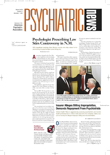Exercise can banish the dark clouds of depression, research has suggested. For instance, a study reported in a 1999 Archives of Internal Medicine found that participation in an exercise training program was as effective as an SSRI in improving mood in older adults diagnosed with major depression.
And now a German pilot study implies that exercise may also be capable of sharpening the minds of depressed individuals, that is, of improving their executive functions, at least to some extent. The study, which was conducted by Manfred Spitzer, M.D., Ph.D., chair of the psychiatric hospital at the University of Ulm in Germany, and colleagues, appeared in the September Journal of Clinical Psychiatry.
It was because aerobic endurance exercise had been shown to improve higher cognitive functions such as executive control in healthy elderly subjects that Spitzer and his colleagues decided to conduct a pilot study to see whether it might also enhance executive functions in persons with major depression.
The researchers selected 24 subjects with major depressive disorder as defined by DSM-IV and an average age of 42 years, and 10 healthy control subjects with an average age of 29 years. The subjects performed a half-hour of aerobic endurance exercise under two different conditions: One was at 40 percent of their predetermined individual exercise capacity, and the other was at 60 percent of their predetermined individual work capacity.
The researchers then measured each subject’s executive-control functions both before and after exercise using four standardized, computerized neuropsychological tasks: the Stroop task, the GoNogo task, the task-switch paradigm, and the flanker task. The Stroop task, for instance, showed words that were congruent with presented colors and words that were not congruent with presented colors; the subject was asked to press a response key marked with the color shown.
The control subjects did not perform any better on the four executive-function tasks after exercise than they had before, the investigators found. The depressed subjects, in contrast, performed significantly better on two of the four tasks after exercise than before. These were the Stroop and GoNogo tasks.
Thus, the study suggests that a single 30-minute aerobic endurance exercise can benefit, at least to some extent, depressed patients’ executive functions.
Spitzer and his colleagues would now like to confirm their results in a larger study sample and also with depressed subjects who are not on antidepressants, as these have been. “The problem of a drug-free control group is obvious, especially as we only have rather severely ill patients,” Spitzer explained in an interview. “You cannot have [patients] off a drug. But such a study should be possible with patients with mild to moderate depression who opt for a psychotherapy intervention.”
If Spitzer and his coworkers conduct another study in this area, they will try to see how long executive-function benefits from exercise last. “This is one of the most pressing questions,” Spitzer said.
Spitzer and his colleagues conjectured that one way that exercise may improve depressed persons’ executive functions is by increasing the synthesis of serotonin in the brain. Endurance training, when carried out for at least half an hour, is known to increase the concentration of the amino acid tryptophan in the brain. Increased tryptophan might then lead to increased concentrations of serotonin, since tryptophan is a building block of serotonin, and the increased serotonin in turn might then not only exert an antidepressant effect, but also pep up executive functions that rely on serotonin-dependent brain structures.
If exercise does indeed benefit depressed persons’ executive functions via a boost in serotonin, it might explain why the control subjects in this study experienced no executive-function improvement from exercise—they were healthy and already had enough brain serotonin to conduct executive functions optimally.
Still another possible neurophysiological route by which exercise enhances depressed individuals’ executive functions, Spitzer speculated, is first by increasing serotonin levels in the brain and then by increasing neuronal growth in the hippocampus. Exercise, like antidepressants, has been found to trigger neuronal growth in the hippocampus, Spitzer pointed out to Psychiatric News.
The study, “Aerobic Endurance Exercise Improves Executive Functions in Depressed Patients,” is posted on the Web at www.psychiatrist.com. ▪
